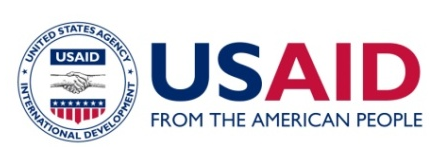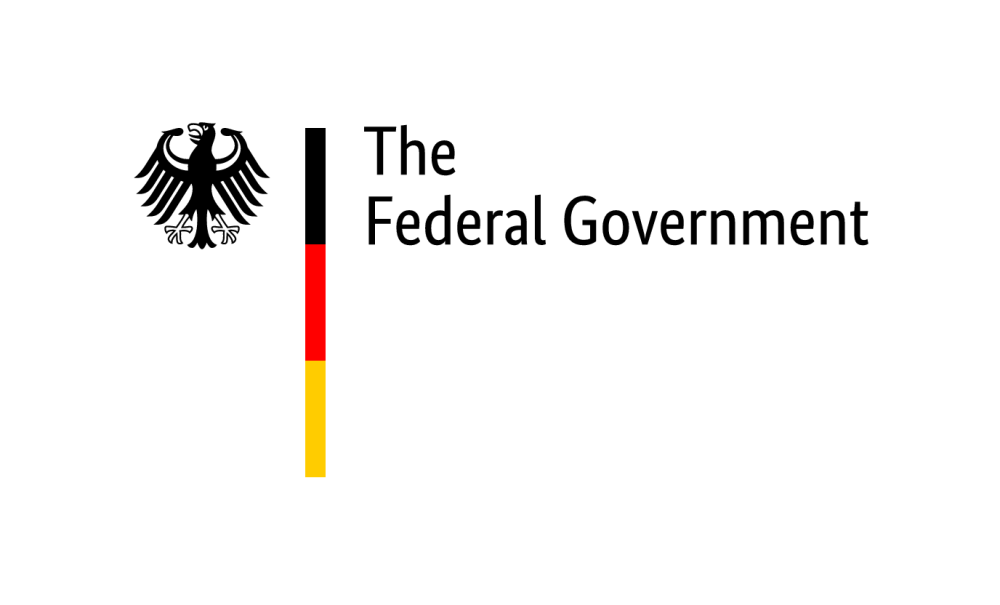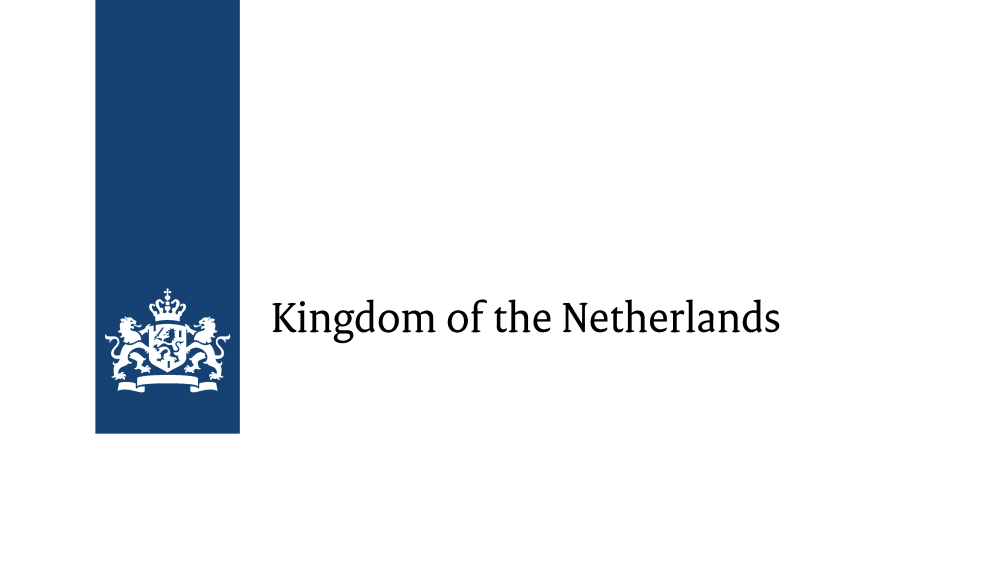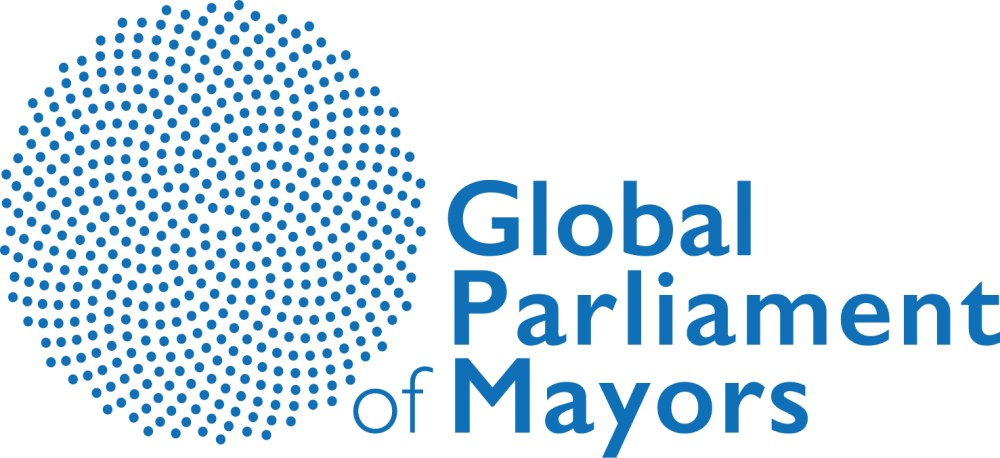Mayors Delivering Democracy Daily
President Biden convened a Summit for Democracy on December 9–10, 2021, to coalesce goals and actions into a “common agenda” for the renewal of democracy.
As part of the Summit, together with the governments of the United States, Germany, and The Netherlands, the Global Parliament of Mayors, and the German Marshall Fund, the Wilson Center hosted a conversation about democratic innovation with mayors from the U.S. and around the world.
This diverse group of mayors are leading action for global policy development and change around the most pressing issues facing democracy today, including corruption, authoritarianism, and social exclusion, as well as climate change, COVID-19, and poverty. The event is part of a larger partnership with additional governments and organizations that are actively engaging democratic innovations and networks of mayors to amplify impact on democratic renewal.
Selected Quotes
Mayor Ahmed Aboutaleb of Rotterdam
“A democracy, like freedom for instance, requires a constant attention and care, but an empty container. It’s a set of values that requires permanent maintenance, especially on the local level. We are the level of government closest to our citizens, and maintaining democratic values is always a work in progress. Of course, we need to provide high quality public services and actively reach out to our citizens because democracy only works if citizens are actively involved, not only at the beginning of making policies and plans but right through the execution. So not only to give their opinion, but also to have an opportunity so Mr. Chair this is the word for today, to move from co-creation to co-decide. You make your system less vulnerable if you allow your citizens to go decide with you. That is important as a building block of trust in government.”
Mayor Peter Kurz of Mannheim
“In Germany and Mannheim, we have robust systems in place to prevent and address corruption, which we are always working to improve, including the implementation of a whistleblower system right now. However, even though discussions about corruption take a different shape in Germany and more broadly the Global North, this does not mean that corruption is absent. Creating a culture of openness and critical faculties inside city hall, and involving citizens not only creates better results, it limits the danger of corruption. This, along with transparency and accountability, are key priorities in our city administration because it is important that our residents understand the work that we do in city hall and trust that we are working in their best interest, and especially that their voices can make a difference. To his end, Mannheim uses public participation to set priorities and for implementing projects. Besides easily accessible public reports, the involvement of all stakeholders is an effective tool to strengthen transparency.”
Mayor-elect Pappas of uMngeni
“In Africa there’s a saying that you know when elephants fight the grass is trampled, so while we’re all struggling for power and positions, and I’m sure this applies to many of your cities and towns, and during the continuous election cycles, the world, or at least my part of the world, is crying out for good news, for hope and for progress, and the elephants continue fighting but the grass keeps getting trampled. So, myself as a young person, young people in particular but not only us, are looking for opportunities to fulfill our dreams, our ambitions, and hopes. We’re looking for access in a system that is continuously pushing back against inclusion and diversity, and those are the things we are looking for as young in the future generations. So for me, a good starting point is recognizing and accepting that we come from many different backgrounds and that we see the world differently, we may have different skin colors or speak different languages, but at the end of the day whatever diversity is for you, we need to recognize it and ensure that we learn from each other, and more importantly see each other as equals in the work that we do.”
Mayor Jennifer Arndt of Fort Collins
“Trying to get people to take somebody else’s viewpoint is challenging for elected leaders, and we’re challenged each day by our constituents. I supported one presidential candidate and my neighbor supported another presidential candidate, in the same party but a primary, and she looked me in the eye and said ‘You are the enemy.’ My next door neighbor. And I said, ‘We don’t talk that way.’ Since then I think she may have rethought her comments, but in the heat of the moment this idea of empathy, civility, and decorum are eroding and we have to work as diligently as we can to set an example and do our piece, right? It never feels like enough, but I do think the way we lead our council meetings, I think they are all televised by now probably, really does set a tone for other people and then we need to speak up and stamp it out when we see it.”
Agenda
Welcome
- Ambassador Mark Green, President, CEO, and Director, Wilson Center
Moderator and Introductions
- Jonathan Capehart, Editorial Board & Opinion Writer, Washington Post, and MSNBC Anchor, “The Sunday Show with Jonathan Capehart”
Opening Remarks
-
Julie Chávez Rodriguez, Director, Office of Intergovernmental Affairs, The White House
-
Birgitta Tazelaar, Deputy Director-General for International Cooperation, Ministry of Foreign Affairs, The Netherlands
-
Irmgard Maria Fellner, Director for Cultural Relations Policy and Deputy Director-General for Culture and Communication, Ministry of Foreign Affairs, Federal Government of Germany
Strengthening Democracy and Defending Against Authoritarianism
-
Allison Gilliland, Mayor of Dublin, Ireland
-
Mohammad Ramdhan Pomanto, Mayor of Makassar, Indonesia
-
Jeni Arndt, Mayor of Fort Collins, United States
-
Rafał Trzaskowski, Mayor of Warsaw, Poland
Combatting Corruption, Providing Transparency and Accountability
- Joy Belmonte, Mayor of Quezon City, Philippines
- Francisco Huamán, Mayor of Lalaquiz, Peru
- Peter Kurz, Mayor of Mannheim, Germany
- Mwenda-Bantu Munongo, Mayor of Bayeke, Democratic Republic of Congo
Diversity, Equity, and Inclusion in Human Rights
- Ahmed Aboutaleb, Mayor of Rotterdam, The Netherlands
- Cristina Díaz Salazar, Mayor of Guadalupe, Mexico
- John Giles, Mayor of Mesa, Arizona, United States
- Christopher Pappas, Mayor of uMngeni Municipality, South Africa
Commitment Challenge: Delivering Democracy Daily in the Year of Action
- Moderated by Nina Hachigian, Deputy Mayor of International Affairs, Los Angeles, United States
“Mayors Delivering Democracy Daily” (M3D) Summit for Democracy Year-of-Action Announcements:
To kick off the Summit’s “year of action”—the period between this year’s Summit and the second Summit roughly one year from now—we are pleased to announce two new activities to be carried out over the next 12 months. These are part of the larger M3D initiative. We hope the mayors participating in the event today will be able to join in both activities:
- M3D International Visitor Leadership Program (IVLP)
The IVLP is an international exchange program operated by the U.S. Department of State in conjunction with the U.S. Agency for International Development, for 25 mayors or their designees. Participants will set their own objectives for democratic improvement in their cities. They work be able to expand their professional skills, share ideas, and network with peers and organizations in U.S. cities.
- Cities Declaration for Democracy:
Over the coming months, M3D will develop the “Cities Declaration for Democracy” among mayors, cities networks, think tanks, and other city and subnational government organizations around the world. Following the Summit, we invite the mayors here today and many others to work together to draft and build support the declaration. The declaration will be made public at the World Urban Forum scheduled for June 2022.
Speaker Bios
Julie Chávez Rodriguez is Deputy Assistant to the President and Director of the White House Office of Intergovernmental Affairs. She served as a Deputy Campaign Manager on the Biden-Harris Campaign. Before that, she was National Political Director and traveling Chief of Staff for then-Senator Kamala Harris’ presidential campaign. Prior to launching Senator Harris’ campaign, she served as California State Director in her senate office. During the Obama-Biden administration, Chávez Rodriguez served as Special Assistant to the President and Senior Deputy Director of Public Engagement in the Office of Public Engagement. Before joining the White House, Chávez Rodriguez served as the Director of Youth Employment at the Department of the Interior and as Deputy Press Secretary to former Secretary of the Interior Ken Salazar. Earlier in her career, she served as the Director of Programs at the Cesar E. Chávez Foundation. A native of California, she is a graduate of the University of California, Berkeley.
Irmgard Maria Fellner, who holds a degree in humanities and political science, entered the German Foreign Service in 1993 after working for the chairman of the European Affairs Committee of the French National Assembly. From 2003 to 2007, following postings in Bonn, London, São Paulo and Washington, she headed the office of Karsten D. Voigt, Coordinator of German-American Cooperation. She later transferred to the office of French Foreign Minister Bernard Kouchner. From 2010 to 2015, she held posts at the Federal Foreign Office in Berlin. She was then appointed Deputy Head of Mission at the German Embassy in Rome. Since 2018, she has been the Director for Cultural Relations Policy and Deputy Head of the Directorate-General for Culture and Communication at the Federal Foreign Office.
Birgitta Tazelaar is the deputy Director-General for International Cooperation at the Netherlands Ministry of Foreign Affairs and a career diplomat with over 25 years experience in political affairs, human rights and development cooperation. Birgitta has worked in The Middle East, Southern Africa and the UK in a variety of bilateral and non-governmental organizations, in both advisory and senior management posts. Before her current job as deputy Director-General, she was Director of the Middle East and North Africa Department preceded by serving as head of Mission in Ramallah managing amongst others a sizeable development cooperation program. From 2008-2011, Birgitta was the political counsellor at the Dutch Embassy in London, responsible for foreign policy areas ranging from security files such as NATO and nuclear, to EU external policy and various crises areas worldwide. Other postings included deputy head of the human rights division in the Hague where she was active on promoting women’s rights in the UN and spokesperson for the Minister for Foreign Affairs. Before joining the Ministry of Foreign Affairs, Birgitta worked amongst others for the Netherlands Development Agency, mainly in Botswana working in regional planning. Birgitta studied Human Geography in Utrecht and did research in Kenya and Spain.
Pillar 1: Strengthening Democracy and Defending Against Authoritarianism
Lord Mayor Alison Gilliland, Dublin
In June 2021, Alison Gilliland was elected Lord Mayor of Dublin. Previously, in 2014, the Mayor served on the Dublin City Council. She is a former primary school teacher who holds a doctorate in education and research. She is also a former senior official of the Irish National Teachers’ Organization (INTO). She served as INTO’s Equality Officer, working on issues pertaining to LGBT+ inclusion, racial, ethnic, and cultural diversity, which is also a focus of her work as Mayor.
Mayor Mohammad Ramdhan (Danny) Pomanto, Makassar, Indonesia
The Mayor won his second term as mayor of Makassar in 2020 (first elected in 2013). Makassar is the fourth largest metropolitan area in Indonesia. He and the city have received 181 awards, including Open Government Leadership (2017) from the Government of Singapore and the ASEAN award for clean land (2017). Under his leadership, Makassar City was among three districts in Indonesia selected as pilot regions of the ASEAN Smart City Networks. As mayor he promotes a clean, beautiful, and green city through his alley gardens and markets, as well as health care home visits, particularly for the elderly.
Mayor Jeni Arndt, Fort Collins, United States
Mayor Arndt was elected in April as a pragmatic progressive with a focus on innovation, inclusivity, and sustainability, and on the issues of water and agriculture policy. She previously served almost three terms in the Colorado House of Representatives. Mayor Arndt leads a historic heavily female-majority city council. She is a former Peace Corps volunteer and former special education teacher, and she holds a doctorate in literacy and language.
Mayor Rafał Trzaskowski, Warsaw
Elected mayor in 2018 as pro-democracy activist, the Mayor is an avid supporter of the European Union and LGBT+ rights. Previously served as a Member of the European Parliament (2009-13) and a Member of the Polish Parliament in 2015. Under his leadership, Warsaw is a founding member of the Pact for Free Cities, an inter-city cooperation agreement aimed at bolstering support for democracy, and includes the mayors of Prague, Bratislava, Warsaw, and Budapest. In June, the Mayor announced creation of the Association of Local Governments to promote the protection of civil and minority rights.
Pillar 2: Combatting Corruption, Providing Transparency and Accountability
Lord Mayor Peter Kurz, Mannheim, Germany
Elected Mayor in 2007 and won a second term in 2015. Serves as President of the Global Parliament of Mayors, one of the co-sponsors of this event (an advocate for global governance on such critical issues as climate change, refugees, inequality and security). In September 2021, he received the World Mayor International Award 2021 for his commitment to cooperation between cities worldwide. Firm believer that only cooperation can solve international challenges and influence national developments.
Mayor Joy Belmonte, Quezon City, Philippines
Elected Mayor in 2019 and previously served as Vice Mayor of Quezon City from 2010 to 2019 (re-elected in 2013 and 2016). She believes that the success of the city lies in having trustworthy leadership, data and information-driven decision making, and an efficient and well-functioning government system that is worthy of the public trust. She is a strong advocate for the protection and upholding the rights of women and children, gender fairness, and economic empowerment of women. She believes that good governance is reliant on people’s participation; she promotes active engagement with many sectoral organizations, civil society groups, and other stakeholders.
Mayor Francisco Huaman, Lalaquiz, Peru
Mayor Huaman is a peasant leader who was first elected in 2018 and has demonstrated extraordinary openness and accountability in his approach to citizen engagement. He actively participates in the district-level Civil Society Assembly to share district plans and to hear from citizens what they need and propose, and he is a champion of citizen oversight known for taking oversight findings seriously. He joined citizens in advocacy to demand corrective action from a private firm contracted for two public rural roads projects. The Mayor promotes gender equality and the participation of women and youth public decision making.
Mayor Mwenda-Bantu Munongo, Bayeke, Democratic Republic of Congo
His Highness Mayor Munongo (mu-n-on-go) of Bayeke and Garangaze is the seventh successor in the Bayeke dynasty, which is the size of Belgium. He is also a Senator since 2007 and previously a national and provincial deputy, and President of Forum of Kings and African Traditional Chiefs. He is very passionate about improving the living conditions of city's population and has led his chiefdom to improve public financial management of mining royalties for higher education in the chiefdom. He is a key partner in the USAID Governance program that promotes more inclusive participatory budget and transparent public procurement.
Pillar 3: Diversity, Equity, and Inclusion in Human Right
Mayor John Giles, Mesa, United States
First elected in 2014, Mayor Giles began his second term in January 2021. He focuses on equity issues given Mesa’s very diverse population, and on immigration policy. Mayor Giles has a long history of community and civic engagement in Mesa. He was elected to Mesa City Council in 1996 and served as Vice Mayor from 1998-2000. The Mayor was named Mesa Man of the Year in 2013 in recognition of his years of service on over 25 Boards and Committees in the greater Phoenix area.
Mayor Christopher Pappas, uMngeni Municipality, South Africa
Just elected to head uMngeni (u-men-geni) Municipality in KwaZulu-Natal (KZN), Mayor Pappas is South Africa's first openly gay mayor. He passionately campaigned to address corruption, improve service delivery, and boost economic growth in the municipality, connecting across racial lines despite a highly polarized political climate. The Mayor served as a member of the eThekwini City Council from 2016-2019 and as a member of the KwaZulu-Natal Legislature from 2019-2021.
Mayor Maria Cristina Díaz Salazar, Guadalupe, Mexico
First elected in 2006, Mayor Díaz was the first female mayor in the city's history. She was re-elected in June 2021. Guadalupe is part of the Monterrey metropolitan area, the second-largest city in the state of Nuevo Leon. The Mayor has had a ong political career at local and national level and served as senator from 2012-2018, representing her home state. As mayor, she has addressed public health and gender-based violence prevention policies and partnered on USAID violence prevention efforts. She has participated in the International Visitor Leadership Program, the U.S. Department of State’s premier professional exchange program.
Mayor Ahmed Aboutaleb, Rotterdam, The Netherlands
Mayor Aboutaleb arrived in the Netherlands from Morocco at the age of 15, and he is the first mayor (elected in 2009) of a large city in the Netherlands who is of both immigrant origin and the Muslim faith. Previously, he served as State Secretary for Social Affairs and director of the Forum organization, an institute working on multiculturalism. In 2021, he became the first Dutch mayor to receive a World Mayors Award for his commitment to all the city’s citizens, regardless of their origin and background. He is focused on issues of immigration, race and faith, and anti-extremism.
Hosted By

Environmental Change and Security Program
The Environmental Change and Security Program (ECSP) explores the connections between environmental change, health, and population dynamics and their links to conflict, human insecurity, and foreign policy. Read more


Global Europe Program
The Global Europe Program is focused on Europe’s capabilities, and how it engages on critical global issues. We investigate European approaches to critical global issues. We examine Europe’s relations with Russia and Eurasia, China and the Indo-Pacific, the Middle East and Africa. Our initiatives include “Ukraine in Europe”—an examination of what it will take to make Ukraine’s European future a reality. But we also examine the role of NATO, the European Union and the OSCE, Europe’s energy security, transatlantic trade disputes, and challenges to democracy. The Global Europe Program’s staff, scholars-in-residence, and Global Fellows participate in seminars, policy study groups, and international conferences to provide analytical recommendations to policy makers and the media. Read more


Latin America Program
The Wilson Center’s prestigious Latin America Program provides non-partisan expertise to a broad community of decision makers in the United States and Latin America on critical policy issues facing the Hemisphere. The Program provides insightful and actionable research for policymakers, private sector leaders, journalists, and public intellectuals in the United States and Latin America. To bridge the gap between scholarship and policy action, it fosters new inquiry, sponsors high-level public and private meetings among multiple stakeholders, and explores policy options to improve outcomes for citizens throughout the Americas. Drawing on the Wilson Center’s strength as the nation’s key non-partisan policy forum, the Program serves as a trusted source of analysis and a vital point of contact between the worlds of scholarship and action. Read more


Africa Program
The Africa Program works to address the most critical issues facing Africa and US-Africa relations, build mutually beneficial US-Africa relations, and enhance knowledge and understanding about Africa in the United States. The Program achieves its mission through in-depth research and analyses, public discussion, working groups, and briefings that bring together policymakers, practitioners, and subject matter experts to analyze and offer practical options for tackling key challenges in Africa and in US-Africa relations. Read more





